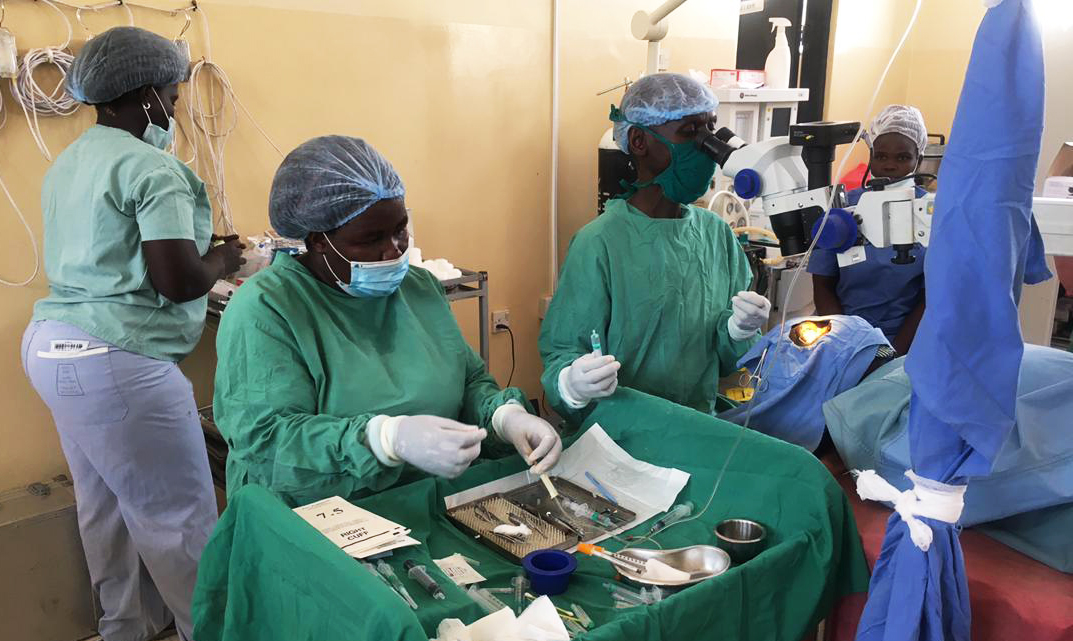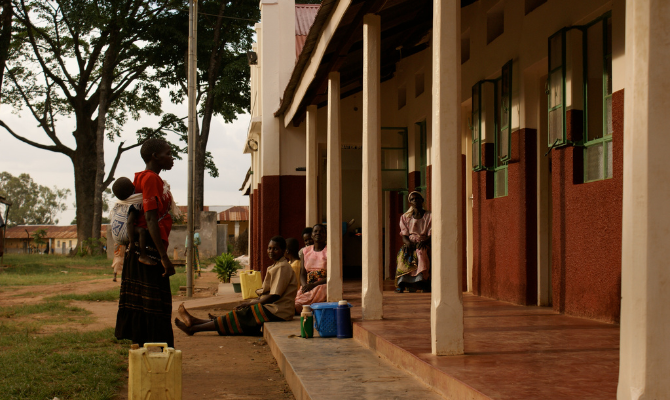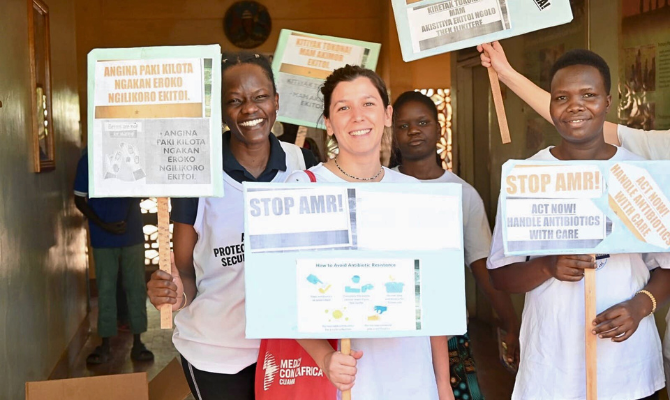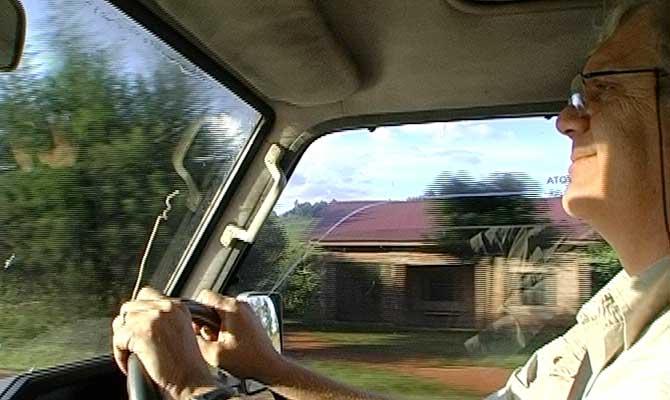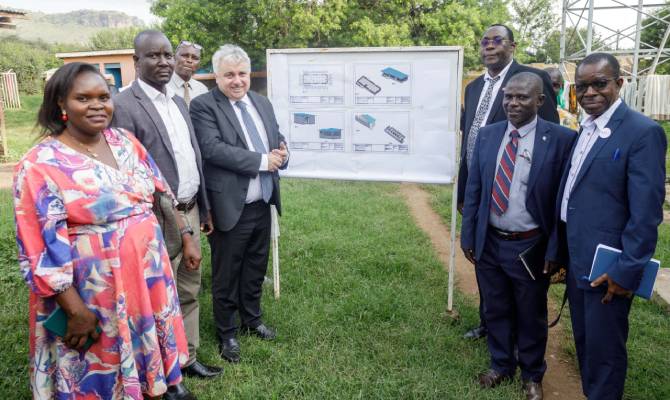In Uganda, in the northern regions of Acholi and West Nile, the situation as regards visual health is worrying: there is a shortage of qualified specialist doctors, and health centres do not provide appropriate eye care services due to the lack of instruments and equipment necessary to tackle visual diseases.
Doctors with Africa Cuamm with CBM Italia (Christian Blind Mission) intervenes in these regions through the project “Foreseeing Inclusion” that aims to contribute to the reduction of avoidable blindness and that also invests on the training of health workers: 1,012 those trained in 2020 in order to sensitize communities on visual diseases, organize the fields of ophthalmic surgery and take care of the periodic monitoring of patients.
The beneficiaries of the project are many and with various diseases, from those suffering from simple cataracts that over time caused blindness, to those who became blind as a result of trauma. The stories of the people we meet every day in the field underline how simple surgery like the cataract removal can change life and their families.
Abdala, a 60-year-old refugee from the Imvepi camp in the Terengo district, suffered cataracts for at least 5 years before surgery: “It was like living constantly in the dark. First, I lost sight in 2018 and after two years, I became very blind. Little by little, I found myself needing help to do anything, even the simplest. My wife had to take care of me 24 hours a day and I am very grateful for this – she says – as well as thank the staff of Medici with Africa Cuamm and CBM for convincing me to do the surgery that gave me the opportunity to see“.
Thanks to artificial intraocular lenses, the day after the operation, Abdala has normally recovered the sight to the right eye. “I am now autonomous again and have a normal life without having to constantly ask my wife for help”.
The story of Isaya, a 47-year-old refugee from the Rhino camp, was blind for 27 years after stepping on a mine. “A lot of people like me lost their sight after stepping on a land mine. Living without being able to see and be autonomous is a great suffering, I could not move alone, work to support my family, I felt useless and often mocked for my fragility. I tried to go to many hospitals but no one could solve my problem. – Says Isaya -. Fortunately, a Cuamm health worker from the Village Health Team advised me to go to the Ofua health center and I asked my brother to accompany me because I did not want to give up. I was able to operate and thanks to the surgery, I saw the face of my wife, of my children. Now I can finally see what I haven’t seen in 27 years“.
The stories of Abdala and Isaya are just some of the many happy ending stories made possible thanks to the project “Foreseeing Inclusion”, which aims to improve the quality of life not only of people who undergo visits and interventions, but also of their families.

